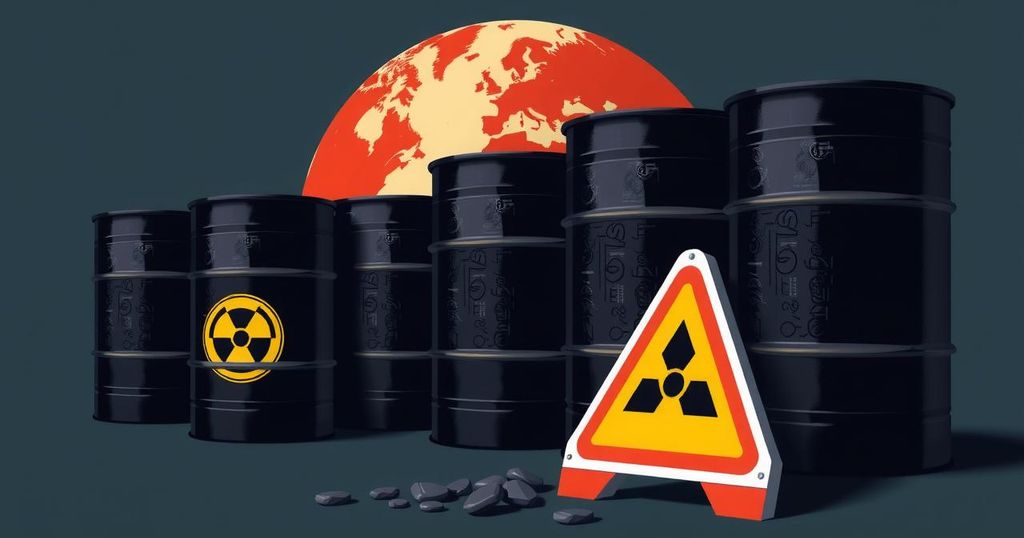World news
ASIA, BIDEN ADMINISTRATION, EUROPE, EUROPE/ASIA, GASOLINE PRICES, GEOPOLITICS, IRAN, KRISTEN WELKER, NATIONAL SECURITY, NORTH AMERICA, POLITICS, PUTIN, RUSSIA, TRUMP, UKRAINE, UNITED STATES, US PRESIDENTIAL RACE, VLADIMIR V, VLADIMIR V. PUTIN, WELKER, WHITE HOUSE, ZELENSKY
Elena Martinez
0 Comments
Trump Issues Stark Warning to Russia with Threat of Secondary Tariffs
Donald Trump threatened Russia with secondary tariffs on oil to encourage peace negotiations in Ukraine. He also criticized Putin for questioning Zelensky’s credibility, reflecting impatience with the process. Trump’s statements indicate a shift in his approach to foreign policy, with potential implications for Iran as well. Experts have raised concerns about enforcing such tariffs given past challenges.
Former President Donald Trump has issued a warning to Russia, threatening to impose secondary tariffs on oil sold to nations that continue to purchase it if negotiations for a peace agreement in Ukraine collapse. His comments, the most critical he has made against President Vladimir Putin, were conveyed on the show “Meet the Press.” Trump expressed impatience with the negotiation process and indicated a willingness to impose tariffs of 25 to 50 percent on Russian oil imminently.
In his discussion, Trump articulated that if he believed Russia was at fault for hindering peace efforts, he would implement secondary tariffs on Russian oil exports. Secondary tariffs refer to penalties placed on imports from countries that do business with nations targeted by the United States’ foreign policy. Trump’s statements reflect a notable shift in his rhetoric towards Russia, in contrast to his previously more favorable stance.
Moreover, Trump expressed dissatisfaction with Putin’s comments about Ukrainian President Volodymyr Zelensky’s credibility and potential leadership changes in Ukraine. He contended that such remarks could further derail negotiations, emphasizing the challenges of reaching an agreement if new leadership is sought. Trump indicated that current efforts toward a ceasefire remain fragile due to ongoing Russia-Ukraine hostilities.
Addressing Iran, Trump stated he would also consider secondary tariffs should negotiations fail regarding Iran’s nuclear program. He warned that if diplomatic efforts do not conclude successfully, military action could ensue, highlighting the escalating tensions surrounding Iran’s nuclear capabilities.
Recently, Trump has been vocal about using secondary tariffs to leverage his policy goals, exemplified by his crackdown on nations purchasing Venezuelan oil. This approach raises questions about the enforcement of existing sanctions against Russia and Iran, as experts suggest that newer measures may face significant challenges in implementation.
In summary, Donald Trump’s recent comments mark a significant escalation in his rhetoric against Russia, proposing secondary tariffs on its oil if peace negotiations in Ukraine falter. His critical stance towards Putin reflects a possible shift in foreign policy aimed at reinforcing economic pressure on Russia and Iran while simultaneously addressing perceived threats from both nations. The efficacy of such tariffs remains uncertain given previous enforcement challenges. Furthermore, Trump’s emphasis on using economic measures illustrates a strategic approach to international negotiations and trade policies.
Original Source: www.nytimes.com




Post Comment